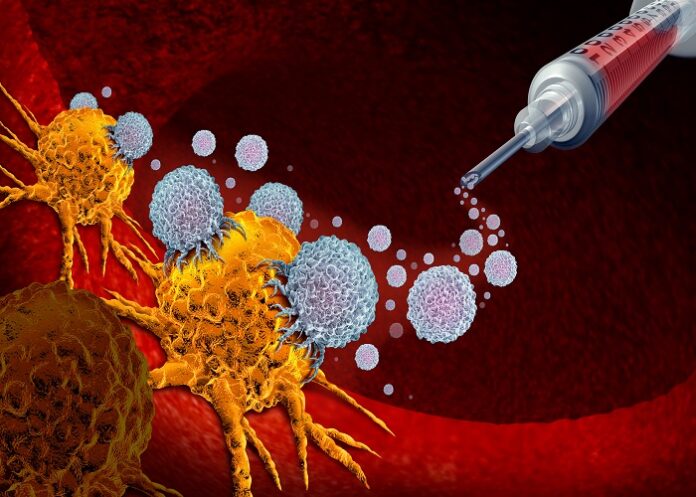Scientists say they are pleased with the interim data from the phase I dose escalation part of the mRNA cancer jab (mRNA-4359) trial, which, they believe, shows promise in patients with advanced solid cancers.
The investigational immunotherapy from Moderna targets lung cancer, melanoma and other solid tumours.
After 19 patients with advanced stage cancers received between one and nine doses of the treatment, the scientists found the immunotherapy created an immune response against cancer and was well tolerated.
Adverse events were minimal, and included fatigue, injection site pain and fever.
Results from the trial, also the first-in-human study of the therapy, were presented last weekend at the European Society of Medical Oncology conference in Barcelona by the UK Chief Investigator of the trial from King’s College London and Guy’s and St Thomas’ NHS Foundation Trust, Dr Debashis Sarker.
mRNA immunotherapy is just one of many cancer vaccines entering clinical trials around the world. It works by presenting common markers of tumours to patients’ immune systems, training them to recognise and fight cancer cells that express them and potentially eliminate cells that could suppress the immune system.
This trial was designed to test the safety and tolerability of the immunotherapy, and secondary and tertiary objectives were to assess the radiographic and immunological responses.
Eight out of 16 patients who could have their responses evaluated were able to demonstrate their tumour size did not grow and no new tumours appeared.
Data also showed the mRNA immunotherapy could activate the immune system in many patients, generating immune cells in the blood that could recognise the two proteins of interest (PD-L1 and IDO1). Researchers were able to show in some patients that the immunotherapy can increase levels of important immune cells that can kill cancer cells as well as reduced levels of other immune cells that can prevent the immune system from fighting cancer.
The results should be treated with caution, say the study authors, as the sample size was small and the primary objective of the study was to test for safety and determine the optimal dose. However, these promising early results support further research into mRNA-4359, they said.
The trial continues to recruit patients with melanoma and lung cancer in combination with the immunotherapy drug pembrolizumab to provide more information on the safety and efficacy of the therapy.
Sarker said the study was an “important first step in hopefully developing a new treatment for patients with advanced cancers”.
“We have shown that the therapy is well tolerated without serious side effects and can stimulate the body’s immune system in a way that could help to treat cancer more effectively. However, as it has only involved a small number of patients to date, it’s too early to say how effective this could be for people with advanced stage cancer.
“The trial continues to recruit patients with melanoma and lung cancers and is a huge international effort across the UK, USA, Spain and Australia.”
Dr Kyle Holen, Moderna’s senior Vice-President and Head of Development, Therapeutics and Oncology, said: “We are encouraged by these results. This novel approach could be a key component in shifting the tumour microenvironment toward a more immune-permissive state, offering potential hope for patients with advanced solid tumours.”
The mRNA-4359 trial is one of a number of studies testing the effectiveness of injections designed to fight cancer, reports The Independent.
This includes the phase 3 trial of a personalised mRNA jab for melanoma – mRNA-4157 (V940) – which was given to a British patient earlier this year.
Scientists use a tumour sample, along with DNA sequencing and artificial intelligence, to create a jab specific to the patient’s tumour.
Elsewhere, a lung cancer patient became the first in the UK to have a new vaccine to help fight the disease in August.
The trial of a jab called BNT116, made by BioNTech, is taking place across 34 research sites in seven countries, with six of them in England and Wales.
- Abstract not available
See more from MedicalBrief archives:
Lung cancer vaccine trial launches in UK
mRNA cancer jab shows promise for brain cancer treatment – US study
Personalised mRNA jab a ‘game-changer’ for cancer patients

